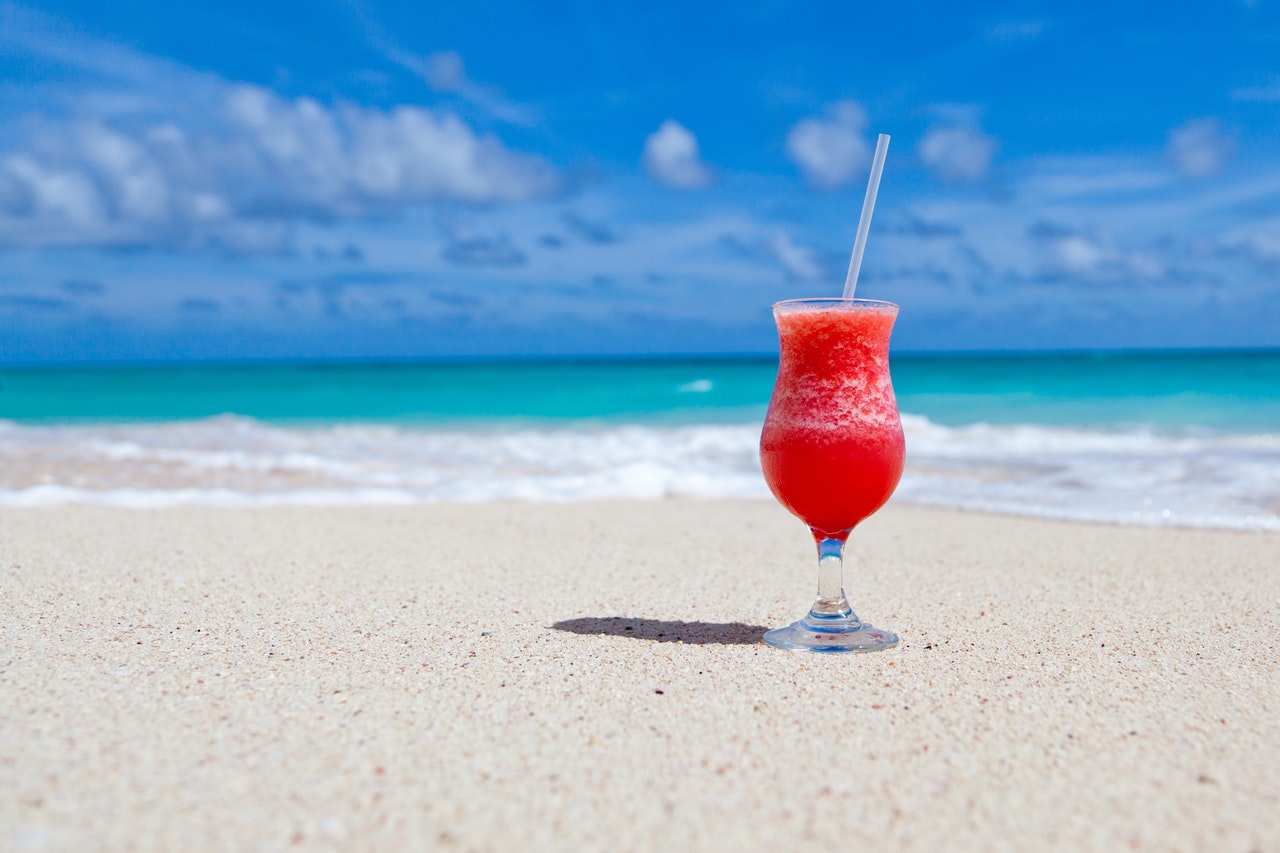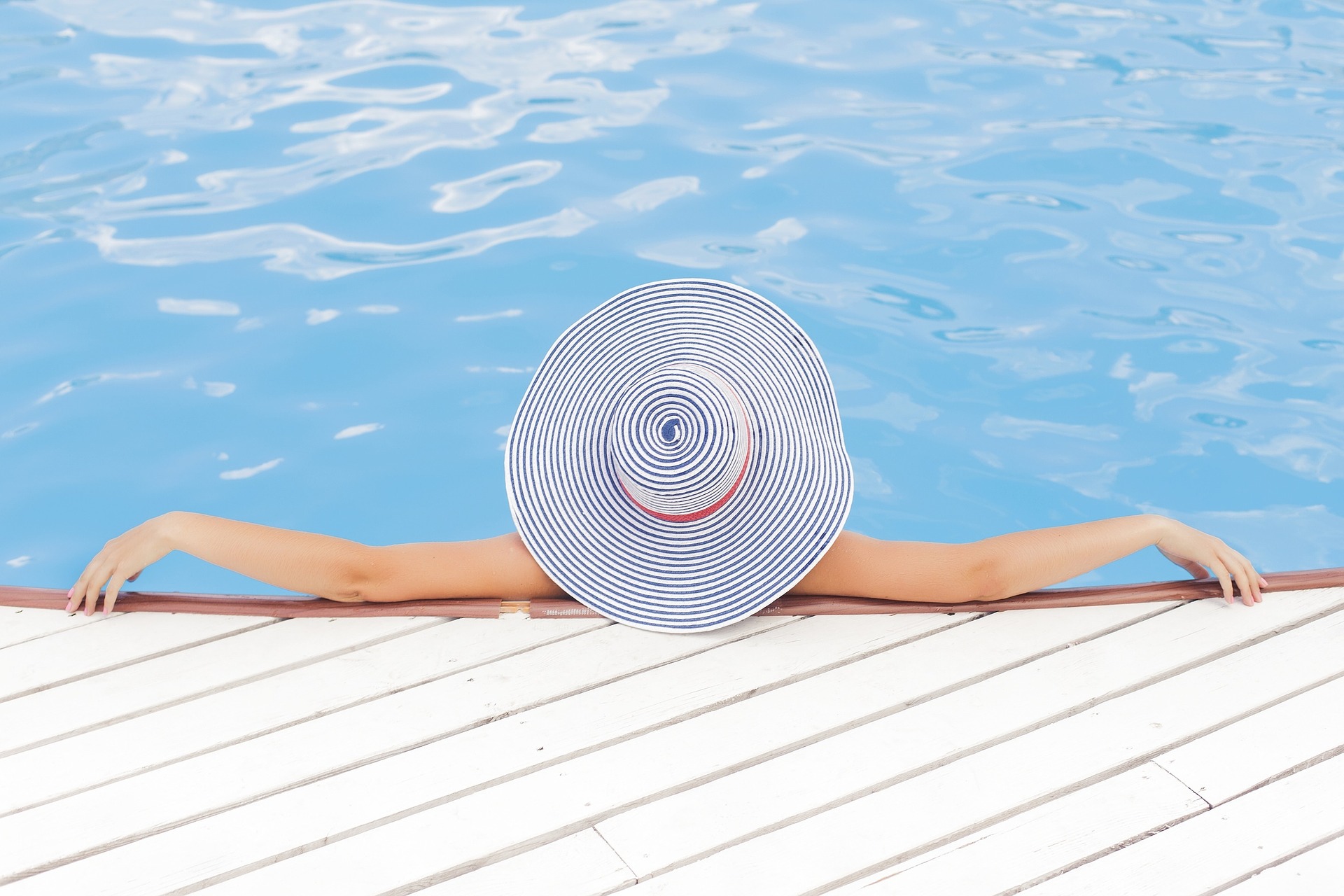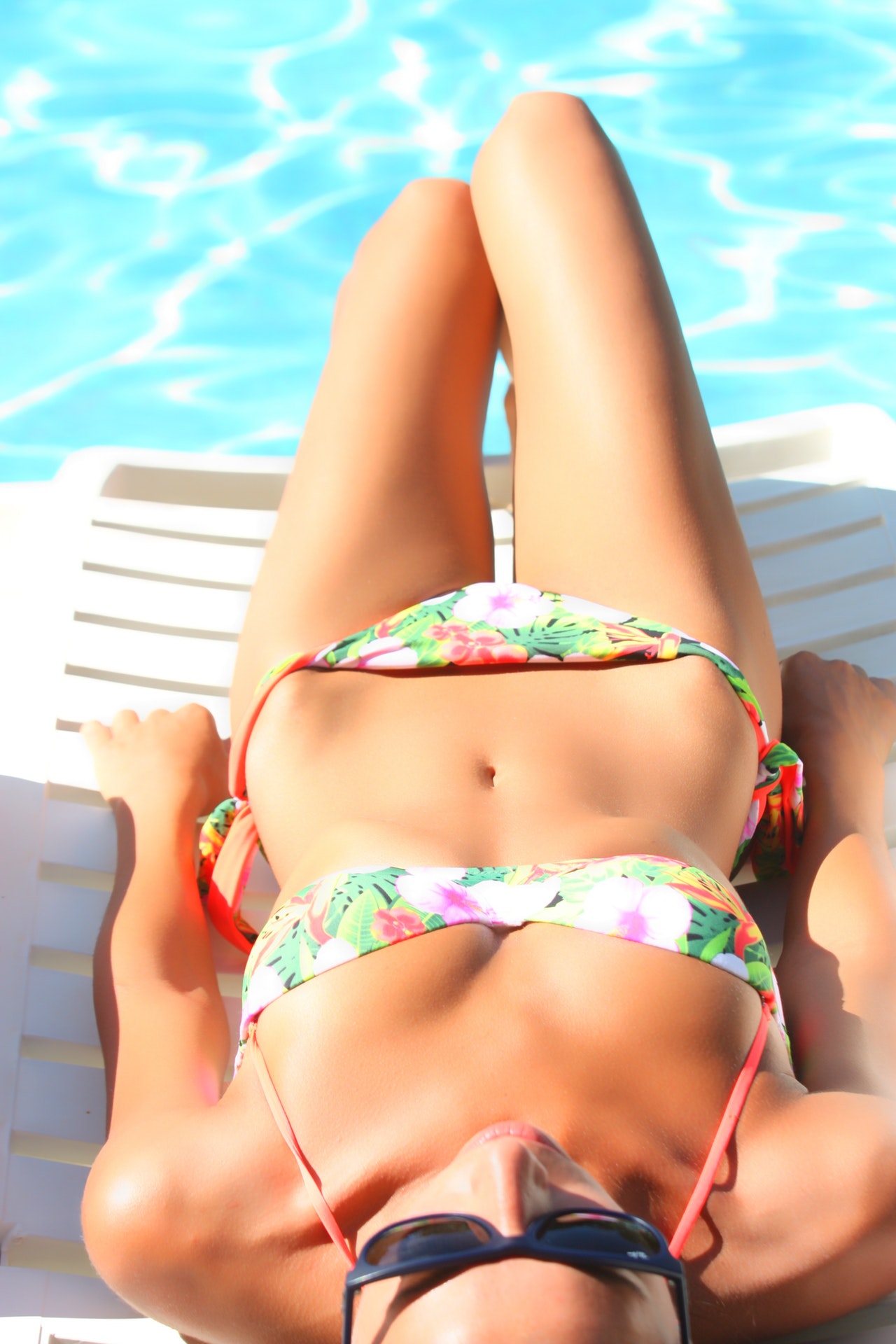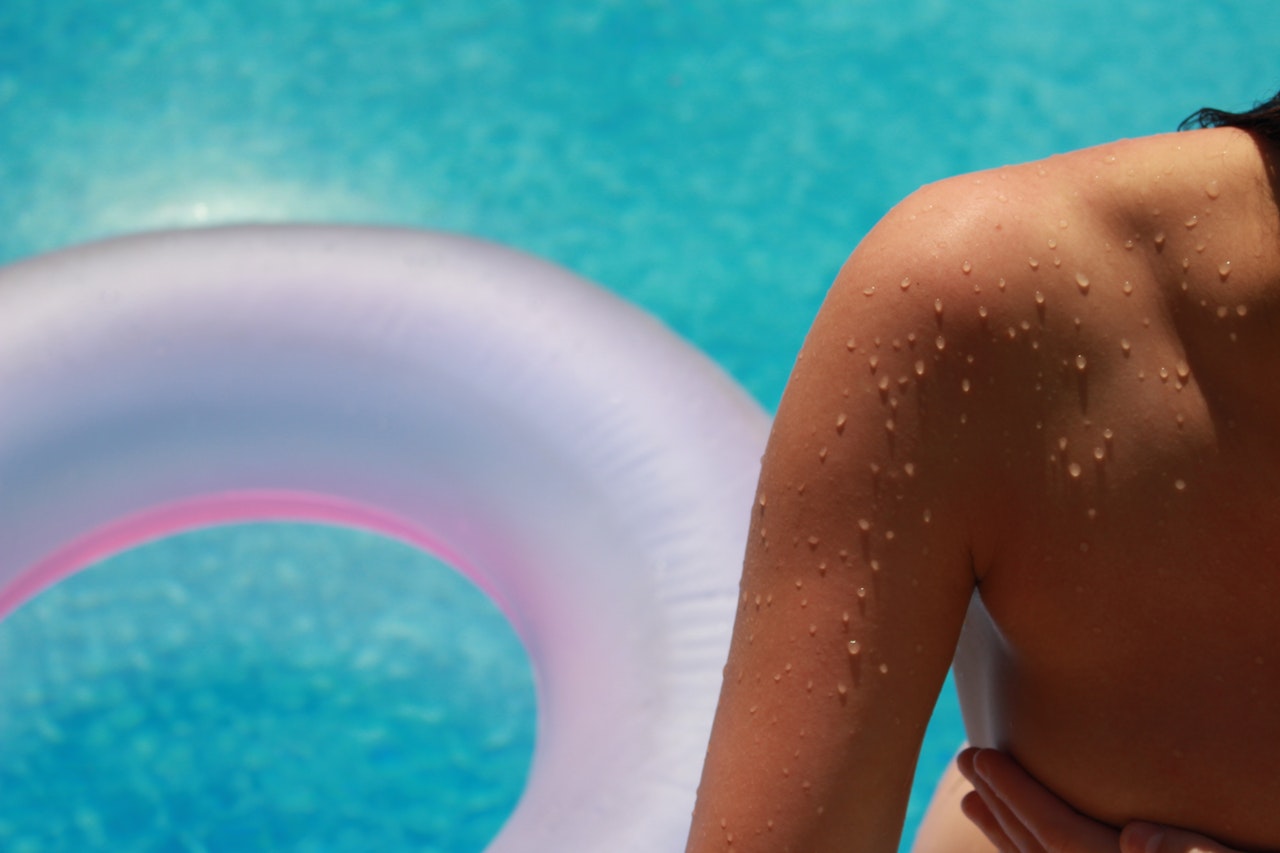
Ahhh summer…sandy beaches, cocktails, long days, sun kissed tan; it sounds perfect, especially if you live for those hot summer days. However, sun is our biggest friend and enemy at the same time.
Sunshine is great because it boosts happiness, builds the immune system and increases oxygen content in the blood. In addition, when directly exposed to sun’s rays, our body starts producing vitamin D. Vitamin D plays an irreplaceable role in developing and maintaining healthy bones and teeth. It is responsible for the absorption and use of calcium.
On the other hand, too much sunshine can be harmful for your health. The sun’s UV radiation can cause premature aging, sunburn, eye and skin damage and in worst cases, skin cancer. More than 90 percent of skin cancers are caused by sun exposure.
All About UV Rays

What we often tend to forget is the fact that the UV rays are always present. UV rays are a part of the electromagnetic light spectrum with wavelength measured in nanometres. Ultraviolet light has wavelengths shorter than visible light, therefore it is invisible to the naked eye.
UV rays are classified as UVA, UVB and UVC; going from longest to shortest wavelength. UVC produces shortest rays and luckily atmosphere’s ozone layer absorbs virtually all of them. Unfortunately, us Earthlings should be concerned about the UVA and UVB rays as they do penetrate the atmosphere.
UVB rays have slightly shorter wavelength than UVA rays but they are more intense. UVB rays cause skin redness and sunburn, meaning they can reach epidermis, your skin’s superficial layer. On the other hand, UVA rays penetrate deep into the skin’s thickest layer – dermis. UVA rays are present during daylight throughout the year. They can penetrate glass and clouds.
In addition, you should reconsider going to tanning beds as they primarily emit UVA rays. In some cases, it can be 12 times more than the sun! Another thing you have to remember is that surfaces like water, sand and snow reflect a lot of sun’s rays. Therefore, if you’re going somewhere on a boat, playing beach volleyball or you’re going skiing make sure to protect your skin.
What Makes Your Skin Tan?

Ever wondered what makes you tan during summer? It’s actually pretty interesting so let’s talk about that for a second. When I talked about UV rays earlier I mentioned that the UVA rays penetrate deep into skin’s thickest layer.
However, both UVA and UVB rays damage your RNA and DNA. This is quite bad since those little damages in DNA are what can lead to skin cancer. In order to protect you from this your cells go into defence mode.
UVA rays trigger melanocytes – cells that produce melanin. Melanin is the pigment that gives your skin, eyes and hair colour and it protects your body by absorbing UV radiation and darkening your skin. Basically, melanin acts as a shield against sun’s radiation. The more melanin your body is able to produce the darker your skin will become and the more protection you’ll have.
Unfortunately, people with fair skin are unable to produce enough melanin so they’re at a greater risk of sunburn. Nevertheless, no matter your skin tone you should always wear sunscreen if you’re planning to be in the sun for a longer time.
Now that you’re a little bit familiar with dangers of too much sun exposure, UV rays and tanning process let’s look at how you can protect yourself to minimise and eliminate risks of skin damages and diseases.
Sun’s Effect On Your Skin And How To Protect Yourself
Lips

Your lips are one of the most vulnerable parts of your body. Remember the pigment melanin that I talked about in the introduction? Our lips have very little of it + the layer of skin on our lips is pretty thin. All of that can cause lips to burn easily and inner damage you may not even see.
Furthermore, sun exposure can damage your collagen levels. Collagen is the most abundant protein in human body. It prevents wrinkles, stretch marks and sagging skin. Other than preventing wrinkles around your lips, collagen gives them some body.
One of the biggest mistakes we do with our lips is lick them. It’s kinda like nail biting – you know you’re not supposed to do it, yet you can’t make yourself stop. When we lick our lips we damage them in many ways. You may think “yeah, I get it why it’s not good when it’s cold or windy outside but why is it bad during sunny days?”. Well, saliva acts like a lens that intensifies sun’s rays on the skin, therefore further damages your lips.
Luckily, protecting your lips is pretty easy. All you gotta do is use lip balm with SPF 30 or higher (UVA and UVB protection) and remember to reapply it when you’re out and about (whether it’s sunny or cloudy outside).
Eyes

Like our lips the skin on our eyelids is very thin and can easily be affected by the harmful UV rays. Inside the eye, the lens and the cornea filter some UV rays but they can also become damaged after many years of unprotected sun exposure.
Eye colour plays a big role here as well. Coming back to melanin again, this protein gives your skin colour but it’s also responsible for the colour of your eyes. The more melanin, the darker your eye colour will be. So if you have fair skin, it shouldn’t be a surprise that your eyes are either blue or green.
Light coloured eyes such as blue, green or grey are far more sensitive than dark coloured eyes because they have less melanin to protect them from the sun’s rays. Exposing your eyes to UV rays without any protection for longer periods of time can cause damage to your eyes, such as macular degeneration and cataracts.
Furthermore, direct sun exposure will lead to wrinkles forming around your eyes due to squinting. No matter what colour your eyes are you should protect them every time you go out. The best way to do that is by wearing sunglasses that block 100% of UV rays plus a hat to protect the rest of your face.
Skin/Body

Our skin requires good, quality protection to preserve its elasticity and health. Long, careless and unprotected sun exposure can lead to skin damage, sunburn, age spots, wrinkles, premature aging, allergies and skin cancer.
UV radiation from the sun is the number one cause of skin cancer, although UV light from tanning beds is just as harmful. Even though we hear many health warnings about sun damage, most of us still go out of our way just to get a tan.
Sometimes things get a little out of hand and after your tanning session you end up looking as red as a lobster. Sunburn is something we should all take seriously when it happens but do everything we can to prevent it from happening.
Sunburn occurs when exposure to UV radiation exceeds your body’s abilities to protect you with tanning. Like mentioned before UV rays damage your DNA and melanin is there to protect you from the radiation. But melanin can only do so much, and that’s when sunburn occurs. It’s just another way of your body trying to fix things. The reason your skin becomes red and warm/hot is because blood flow to the dermis is increased in order to repair skin cell damage. After a couple of days these damaged cells die and your skin begins to peel.
There are a couple of things you can do to prevent sunburn. First and foremost, use sunscreen with adequate SPF and both UVA and UVB protection. SPF stands for Sun Protection Factor and it tells us how well it can protect our skin from UVB rays. Sunscreen with SPF 15 will block 93% of UVB rays, SPF 30 blocks 97% and sunscreen with SPF 50 blocks 98% of UVB rays.
Other than using sunscreen, you have to stay hydrated! This is really important during any day but crucial during summer days. Moving on, if you know you burn easily but still want to go to the beach, find a spot where you can stay in shade when you’re not swimming. Also, avoid sun between 11 am and 4 pm when the UVB radiation is the strongest.
Taking care of your skin even after you were out in the sun is as important as well. Taking a cold shower when you get home is good to balance out your skin temperature. If you can, invest in a cooling shower gel (such as mint shower gel) and cooling body lotion. Cooling body lotions usually contain d-panthenol* as well as moisturisers to keep your skin nourished.
*D- panthenol is a nutrient from the B vitamin family and it helps manage negative results stress can have on our skin. In this case it relieves, cools and calms the skin after excessive sunbathing.
A Quick Reminder
- Use lip balm and sunscreen with both UVA and UVB protection, minimum SPF 15
- Wear sunglasses that block 100% UV rays + a hat
- UVB rays are the strongest between 11 am and 4 pm so if you can avoid sun at those hours
- Remember that water, sand and snow reflect sun’s rays
- Stay hydrated
- Avoid tanning beds as they can emit more UVA rays than the sun
- Moisturise and soothe your skin after sunbathing by using cooling body lotion
- Remember to put your health in the first place

I thoroughly enjoyed writing this post for you and I hope you enjoyed reading it as well as learn something from it! Stay safe and no matter where you are, I hope you’re having one awesome, unforgettable summer,
M, xo
